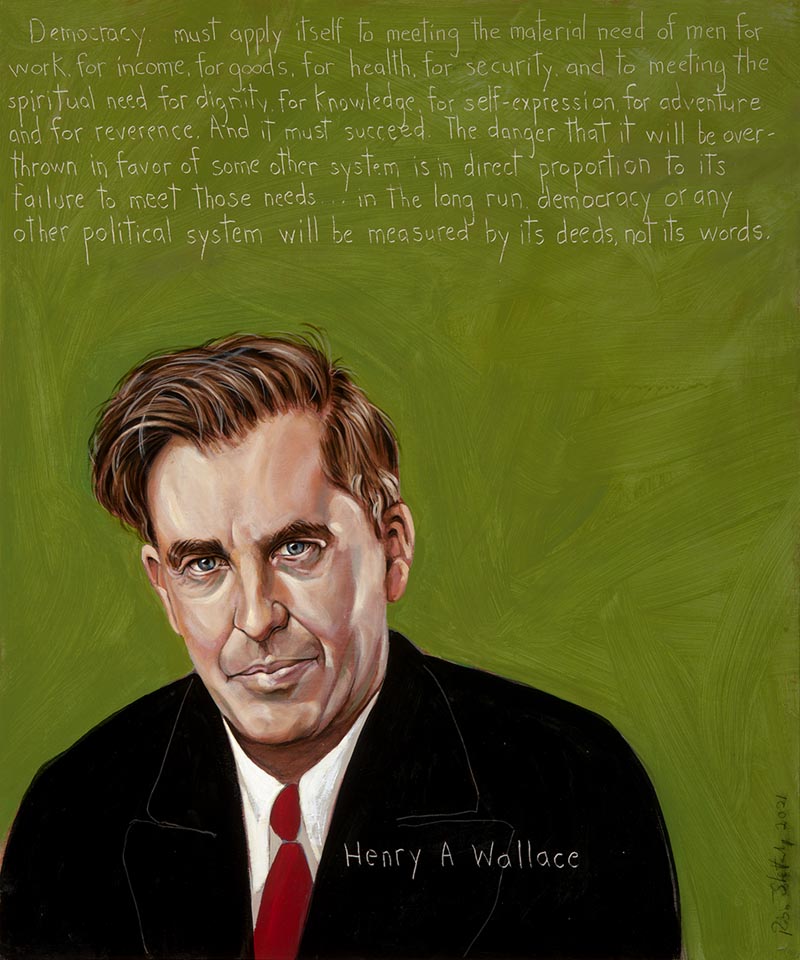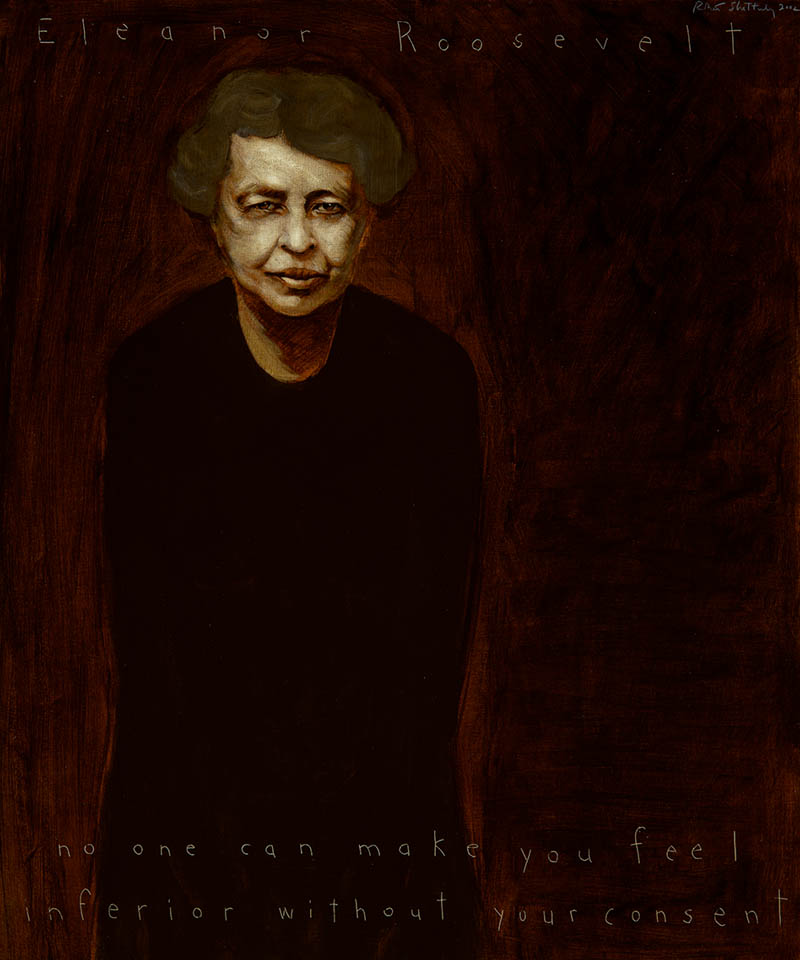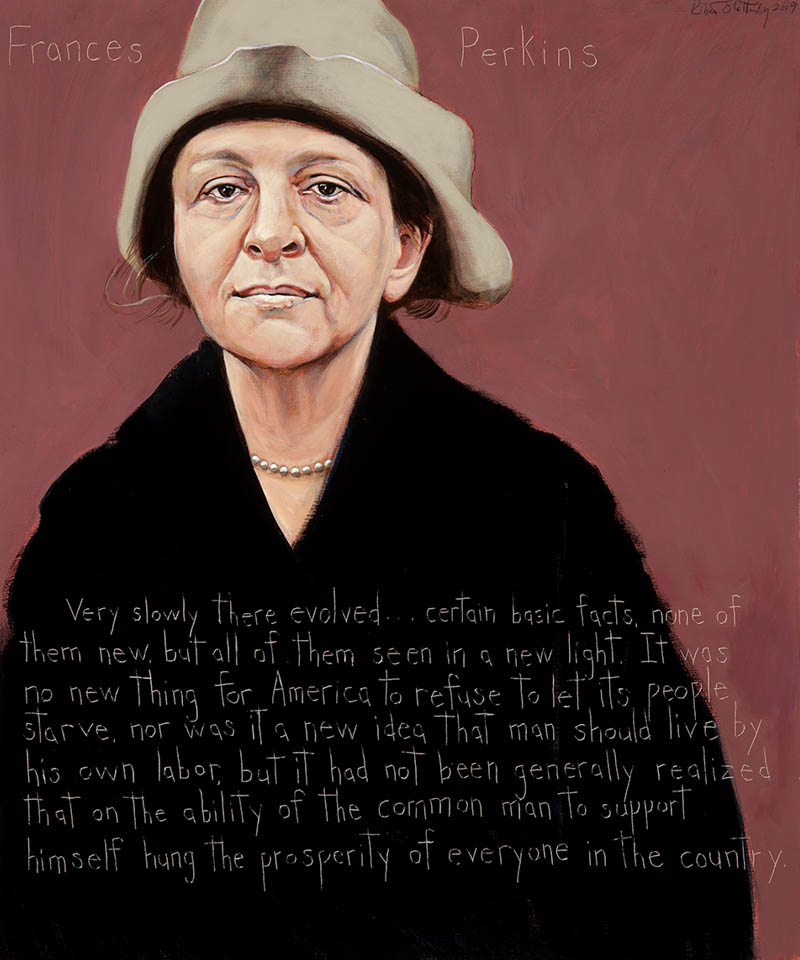What's New
The Elusive Truths of Democracy
The Fight for the Soul of the Democratic Party: The Enduring Legacy of Henry Wallace’s Antifascist, Antiracist Politics
John Nichols
Verso, 2020, 286pp
Nothing could be timelier than John Nichols’ terrific new book, The Fight for the Soul of the Democratic Party, which begins by examining what happened to the New Deal in the middle and late 1940’s as thecrisis of the Depression was abating and World War II ending. The strongest advocate for the continuation of the policies of the New Deal – after FDR himself, his Secretary of Labor Frances Perkins, and the first lady Eleanor Roosevelt – was FDR’s vice president in 1940, Henry Wallace. When the forces of wealth and power were licking their imperialist chops over how the U.S. could emerge from the war and profit as the commanding economic, military and cultural force in the world, Wallace was advocating for making the post-war period the Century of the Common Man, an era of world peace, an era of U.S. wealth and might working to establish international economic and gender equality. Wallace advocated for policies to end those inequities which create war. He saw the opportunity for America to finally inhabit its original truths and the Democratic Party to be the vehicle to make that happen. What Nichols documents is how successfully racist and corporate power inside the Democratic Party hijacked the progressive and popular vision of the New Deal – not just then but up to the present.
A couple of years ago I read Jill Lepore’s new history of the United States, These Truths (W.W. Norton, 2018). It’s a fascinating and deeply troubling book. She looks at our history through the lens of the stated truths of the Declaration of Independence and how we failed then to enact them for everyone. She asks why, and then enumerates the many opportunities over 250 years to make good on their promise and how they were rebuffed or subverted. Lepore’s book tells a story similar to NIchols’: a grand democratic purpose undermined again and again.
That subversion was directed by all the usual suspects – white supremacy, privilege, profit, power, racism, sexism, propaganda and the insistence that the right to exploit people and the environment is a fundamental, guaranteed apple-pie freedom. Freedom is what we are all about, right? Sadly, that opportunistically defined freedom morphs into a monster that gobbles up all our other values – equality, the common good, compassion, democracy – and, today, our very survival. That brand of freedom is the value of choice for vested interests. It’s a symptom of the mentality of those who refuse to wear masks today to deter the spread of COVID-19. This freedom is a euphemism for self-interest.
Both Nichols and Lepore concentrate on the New Deal era of the 1930s and ‘40s when Franklin Roosevelt was elected president for four terms beginning in 1932. This was the era of the Great Depression. The economy collapsed. The Dust Bowl transformed proud, self-reliant western farmers into refugees; millions of people lost their jobs and savings. The 1920s had reveled in freewheeling consumption, speculation, wealth disparity, and violent racism. When the bubble burst, desperation and chaos infected the country. But as often happens in crisis, just as some visionary people saw the opportunity to reimagine the United States in the image of its original values, some others worked behind the scenes to make sure that didn’t happen.
Much of that reimagining was focused on the rights and dignity of working people whose exploitation had created great wealth for capitalists but no safety net for workers. The New Deal worked to remedy that situation, with the implicit understanding that democracy can’t function unless the economy treats everyone fairly and with dignity. The eight hour day, workplace safety regulations, the right to unionize, collective bargaining, social security, a minimum wage – all these New Deal programs were meant to level the playing field and save democracy from the oligarchs’ “freedom” to be oligarchs.
Nichols follows Wallace as he stumped tirelessly, speaking to huge crowds all over the country. People loved his passion for basic democratic values. He fiercely railed against racism, sexism, engineered poverty, militarism and incipient fascism in the U.S. As the defeat of Germany, Japan and Italy neared, he could see symptoms of fascist mentality stirring in the racism and corporatism of the U.S. Wallace said: “Those who write the peace must think of the whole world. There can be no privileged peoples. We ourselves in the United States are no more a master race than the Nazis. And we cannot perpetuate economic warfare without planting the seeds of military warfare. We must use our power at the peace table to build an economic peace that is charitable and enduring.”
Wallace’s prescience envisioned many of the issues we see exacerbated by the current resident of the White House. Wallace said, “Those who fan the fires of racial clashes for the purpose of making political capital here at home are taking the first step toward Nazism.”
Nichols shows how powerful conservative forces within the Democratic Party which were never happy with the economic fairness of the New Deal acted during the Democratic presidential convention in 1944 to undermine the Party’s support for progressive policies and removed Wallace from the ticket. Charitable and enduring economic peace” was not their goal.
Exclusion of real progressiveness has haunted the Democratic Party ever since. As the “free speech” of big money became more strident and greedy, the Democratic Party has become subservient to the same money forces embraced by the Republicans. Nichols exposes this process at work in all the Democratic administrations and policies since 1948 – a steady erosion of support for unions, workers, peace making, poor people, racial equity, health care, and corporate regulation. Instead, the Party establishment has cozied up to the Big Banks, Wall Street and the war makers. Democrats like George McGovern and Jesse Jackson courageously continued the rearguard struggle for progressive values but were overwhelmed.
At the end of the book Nichols interviews contemporary Democratic progressives who, in the tradition of Henry Wallace, articulate what freedom is really supposed to mean and why that freedom has to be the soul of the Party. He visits Wallace’s birthplace in Iowa with Bernie Sanders. They discuss the legacy of the New Deal and Sanders says, “…if you’re making $9 an hour, if today you have no health care, if today you can’t afford a higher education, how free are you really? … What does that freedom mean? … Freedom means you have decent housing at a price you can afford. Freedom means that, when you turn on your water faucet, the water that comes out is not toxic but drinkable.”
Nichols’ book is a passionate defense of the New Deal principles and the people who carry on its intent and legacy today. The New Deal, he says, is “… not some majestic memory, but … a touchstone.” It was the crucible when the U.S. came closest to adopting its founding values. Today’s general extolling of “moderate” Democrats continues the long retreat from real progressiveness and real democracy. The soul of the Democratic Party lives in those who struggle for justice, dignity, opportunity and generosity for all. Nichols’ book examines all the sleazy ways corporate Democrats have tried to extinguish the flame of progressivism. They can’t. That flame – the spirit of justice – still burns, refusing to be snuffed out.


